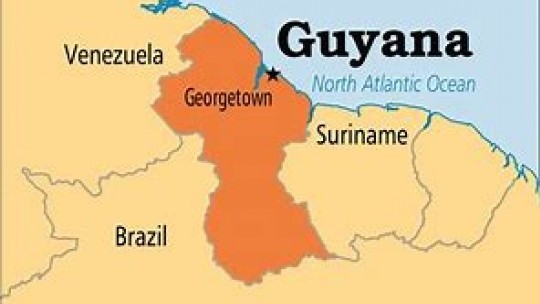Guyana in Transition - part one
11:10 am, Tue April 24, 2018
By Bumpy Walker
In July 1959 the Groningen gas field was discovered onshore in the Netherlands[1]. It was the largest gas field in Europe and the tenth largest found in the world. This discovery led to significant positive impacts, not only in Holland, but throughout Europe.
Geologically, this discovery catalysed the North Western European oil industry. Geopolitically, it was the driver to negotiate maritime borders which had been in dispute for centuries. In terms of tax, it led to the development of laws that allowed private corporations to have the incentive to invest in this industry while giving the state a fair share of the riches.
Technically, it led to the development of a network of pipes for gas distribution as well as how oil companies viewed gas. It allowed Holland to develop its agricultural and horticultural industries, as gas from this discovery was used to heat green houses. The tax revenue was invested in education, infrastructure and social programmes that established the basis for Holland to have superior social indicators. (The Netherlands now has on average the tallest people in the world, after being one of the shortest in the 19th century) [2]
The above narrative demonstrates that the Groningen discovery had positive effects. It led to the development of environmental and safety legislation that carried over into other industries. This demonstrates that technical and social advantages can flow from commercial hydrocarbon extraction.
There was some economic disruption. The discovery of this huge natural resource led to a revaluation of the Dutch currency, making the rest of the country’s economy non-competitive. This economic phenomenon is known as “The Dutch Disease”. [3]
Guyana Oil Discovery
Guyana could be the next victim of the “Dutch Disease”. In 2015 EXXON Mobil announced the first of a series of hydrocarbon discoveries offshore Guyana.
The above praise poem to the Dutch hydrocarbon industry is instructive as Guyana does not have to reinvent the wheel or repeat the mistakes made by the Dutch, the Norwegians, the Trinis or the Nigerians. It can learn from the past and by pass the social and political dangers associated with nations that are resource rich. As a nation it has to ensure that the political leadership does not stop seeing its people as the wealth creators. This is a serious danger as it is very easy to become addicted to the revenues from hydrocarbons. It cannot afford to focus on extracting revenue from the produced oil and gas while ignoring the long term economic sustainability of the country. Ask the Venezuelans!
To date the Guyanese dollar has been fairly stable in trading. This is surprising as during the last decade the US has devalued their currency through quantitative easing. No value has yet accrued through oil production; that’s expected to begin in 2020.
Currently there are claims that Guyana has reserves of 3.2 billion barrels of oil. This is dwarfed by its neighbour’s Venezuela reserves of 300 billion barrels. But Guyana now has more reserves per capita than Iraq.[4] One can foresee the possibility of Guyana becoming a Brunei or a Qatar if more reserves are found in future explorations
This will not be easy or cheap. The discovered reservoirs are located in water at a depth greater than a kilometre. Literally hundreds of millions of dollars (US) will be spent before the first oil is extracted and sold.
There-in lies the rub. As a nation Guyana has a GDP per capita of $4000 US and a population of a mere 750,000 but with a diaspora of approximately 500,000. It also does not currently have the trained personnel to fully exploit this windfall. It takes at least a decade for a country to build up a pool of technically competent personnel. A further complication is that the majority of its most recent tertiary trained students have migrated. Guyana’s maritime neighbour Trinidad and Tobago and its land neighbour Venezuela do have the trained personnel. So a regional solution seems the obvious way out.
As for me, I am dusting off my CARICOM passport, highlighting my marital connection to Guyana and sending my CV to the oil companies looking to capitalise on my arcane skills.
[1] https://www.geoexpro.com/articles/2009/04/the-groningen-gas-field
[2] https://www.theguardian.com/world/2015/apr/08/scientists-try-to-answer-why-dutch-people-are-so-tall
[3] Best description from an energy perspective is detailed in the books “The Prize: The Epic Quest for Oil, Money & Power” and “ The Quest: Energy, Security and the Remaking of the Modern World” both by the economist Daniel Yergin
[4] https://www.stabroeknews.com/2018/opinion/letters/01/29/the-oil-find-in-guyana-is-huge/
Bumpy Walker is a Jamaican engineer with considerable experience in the oil and gas industry. He's currently based in Scotland.

9:09 pm, Thu April 11, 2024

8:50 pm, Fri April 12, 2024

2:04 pm, Fri April 12, 2024








 All feeds
All feeds







